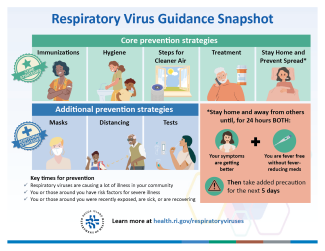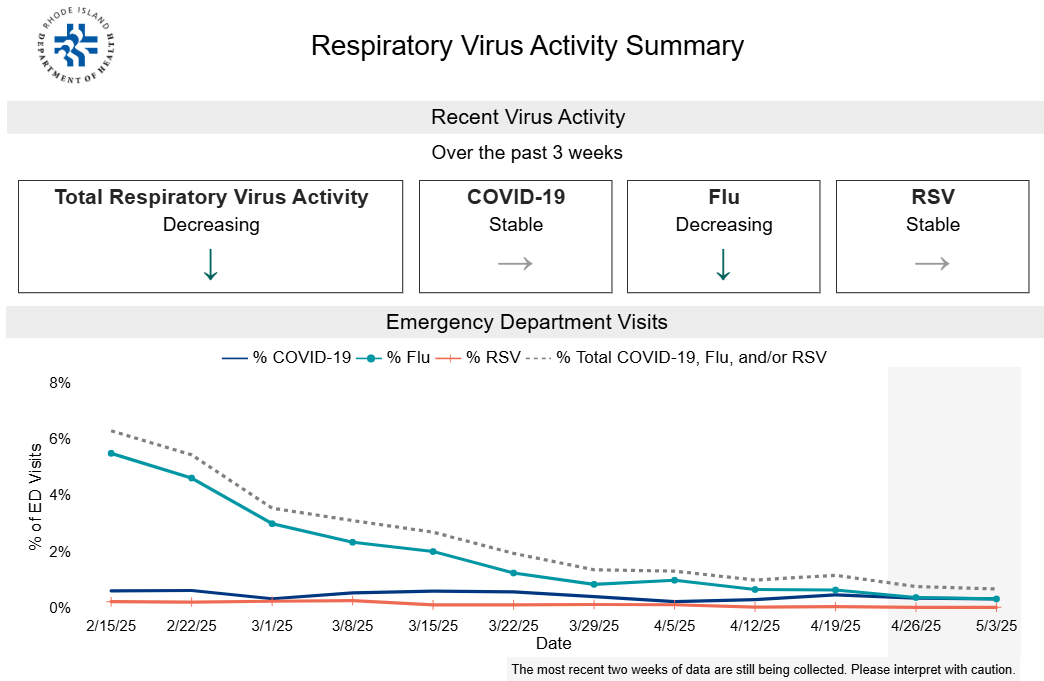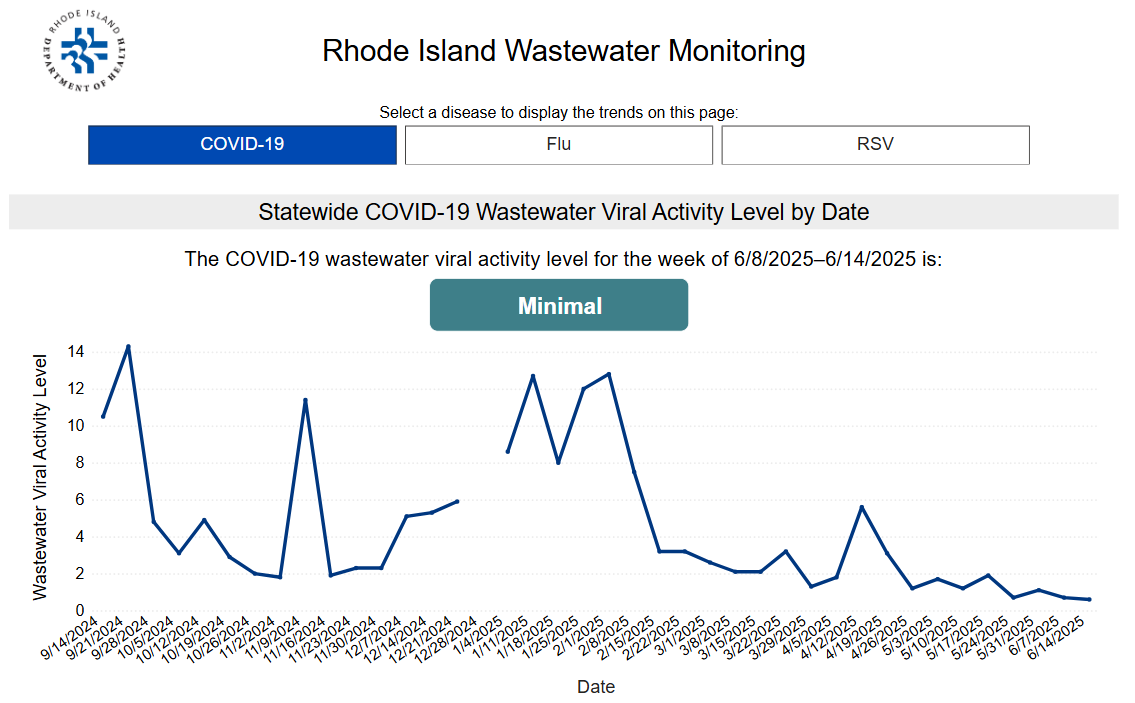Protect yourself from COVID-19, Flu, and RSV
It’s common to get sick from respiratory viruses such as COVID-19, flu, and respiratory syncytial virus (RSV), especially in the fall and winter. Each year, respiratory viruses are responsible for millions of illnesses and thousands of hospitalizations and deaths in the United States.

Core Prevention Strategies
The Centers for Disease Control and Prevention (CDC) recommends that all people use core prevention strategies. These are important steps you can take to protect yourself and others from respiratory virus illnesses.
- Stay up to date on your vaccines. Talk to your healthcare professional or pharmacist about current recommendations.
- Get your flu shot. Everyone age 6 months or older should be vaccinated every year.
- Stay up to date on your COVID-19 vaccinations.
- Learn about RSV immunizations for certain populations.
- Find out which fall and winter vaccines are right for you.
- Find a vaccine clinic or program near you.
- Practice good hygiene by covering your coughs and sneezes, washing or sanitizing your hands often, and cleaning frequently touched surfaces.
- Take steps for cleaner air to increase ventilation and circulation
- When you may have a respiratory virus:
- Use precautions to prevent spread. Stay home and away from others until your symptoms are getting better for 24 hours and you’re fever free without fever-reducing meds for 24 hours. Then take added precautions for the next 5 days.
- Seek health care right away for testing and/or treatment if you have risk factors for severe illness. Treatment for flu or COVID-19 may help lower your risk of severe illness.
Additional Prevention Strategies
You can choose from these additional prevention strategies to further protect yourself and others:
Key Times for Prevention
All these prevention strategies can help reduce your risk of getting sick. They are especially helpful when:
- Respiratory viruses are causing a lot of illness in your community. Check out current Rhode Island Respiratory Virus Data trends.
- You or the people around you were recently exposed to a respiratory virus, are sick, or are recovering.
- You or the people around you have risk factors for severe illness.
- You may not be aware of the things that can make others more vulnerable to serious illness. Using the core prevention strategies will provide some protection no matter what. If you are unsure about the health condition or risk status of those around you, the most protective option is choosing to use additional prevention strategies, like masking, physical distancing, and testing.



